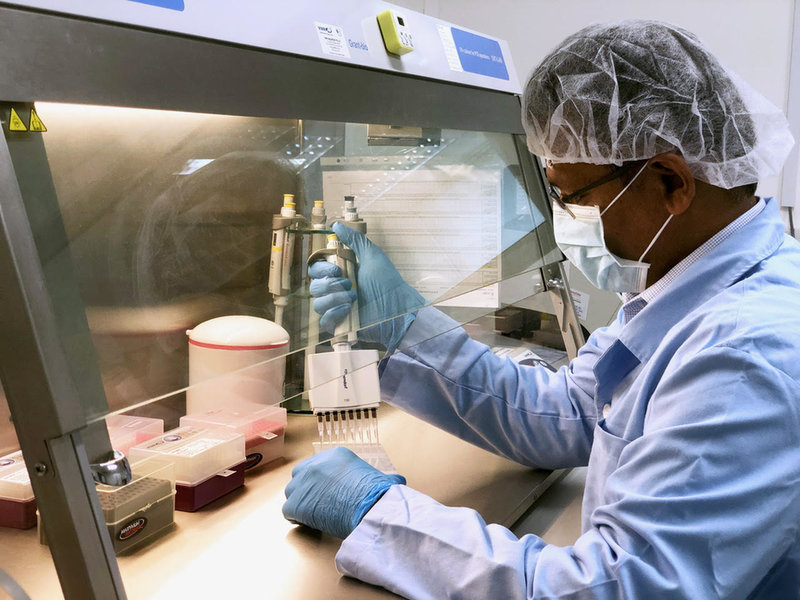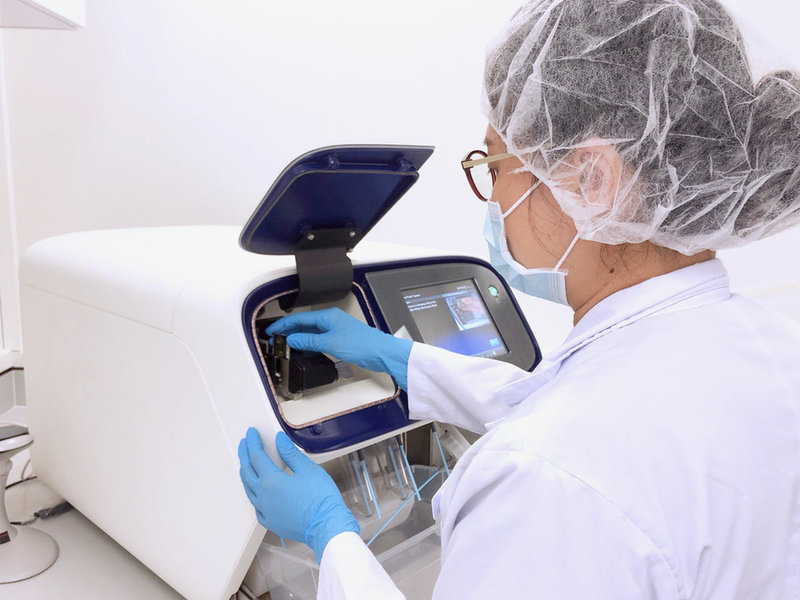Q&A: Precision Medicine
Diverse diagnostics: why ‘one size fits all’ doesn’t always work
Molecular diagnostics company Inex Innovate focuses on conditions that specifically affect women. CEO Kane Black talks to Natalie Healey about broadening access to non-invasive health tests and finding more accurate ones for Asian populations.
All images: Inex Innovate
O
ver the decades, new diagnostics have emerged for a range of health conditions, which provide greater accuracy, at a lower cost. But there’s concern that some of the tests used around the world provide less reliable results for some ethnic groups. For instance, mammography may not be as effective for detecting breast cancer in Asian women, as this group tends to have higher-density breast tissue than other groups.
There’s an unmet clinical need for tests aimed at certain ethnic phenotypes. Kane Black, CEO of Singapore-based Inex Innovate, says he wants to tackle this and other key issues in women’s health. He co-founded Nova Satra in 2012, which recently merged with Inex to form Inex Innovate. The company’s portfolio includes tests for ovarian cancer, breast cancer and prenatal screening, and it’s currently collaborating on several research and development projects with the National University of Singapore and the Agency for Science, Technology and Research (A*Star).
Below, Black discusses Inex Innovate’s mission, the demographic challenges of cancer diagnosis and the potential for precision medicine to meet unmet needs in this area.
Natalie Healey
What’s the history of Inex Innovate?
Kane Black
Inex was founded by three obstetrician-gynaecologists – Mahesh Choolani, Khalil Razvi and Arijit Biswas – in 2006. They were motivated by clinical unmet needs in women’s cancers, such as their often late-stage diagnosis. They also saw a need for more accurate prenatal information for pregnant women.
Dr Sidney Yee, a seasoned venture investor with a chemist-molecular biology background, was recruited as a co-founder to develop the passion into a business. In August 2019, the company merged with another Singaporean molecular diagnostics developer Nova Satra to become Inex Innovate.

What is the company’s mission?
Our mission is to find technologies, which provide better care for women, throughout all the different stages of their lives. We’re very focused on the early detection of women-specific cancers, such as breast – the most common, and ovarian – one of the most lethal. We also want to empower mothers by providing information on the health of their unborn child, safely and accurately, without any risk to the foetus.
Medical products have historically been developed based on largely non-Asian populations. With the democratisation of genomics information, we now know there are many genetic differences amongst various populations, hence health solutions need to be adapted.
And we also want to see a move away from invasive testing, which relies on tissue biopsy, to newer technologies that rely only on blood tests. These blood-based testing platforms cause less anxiety and concern to patients. In addition, blood tests can be done early and frequently and mean greatly improved patient outcomes.
What are the current challenges with women’s cancer diagnostics?
With ovarian cancer, the five-year patient survival at the early stage (stage I and II) is 70%-90%. This drastically decreases to 20%-30% in late stages (stage III and IV). But early-stage detection is poor as there is often a lack of specific symptoms at the beginning.
A patient with non-specific, but persistent, symptoms, such as pelvic pain or abdominal bloating, will usually undergo transvaginal ultrasonography and a CA-125 blood test. But these tests are not definitive. CA-125 cannot accurately diagnose early-stage ovarian cancer, leading to false-negative results. It can also be elevated in non-ovarian cancer conditions, causing false positives. In addition, CA-125 has been shown to be not very useful for ovarian cancer prediction in Asian populations.
About 90% of ovarian cancers are epithelial ovarian carcinoma. Our OvaCis platform discriminates benign from malignant epithelial ovarian cysts in five minutes. The diagnosis can be performed on the spot, inside the operating theatre. We will shortly be announcing a clinical trial in the US with a renowned cancer institute.
Our other ovarian cancer test, Xena, is an early detection blood test, based on detecting cell-free microRNA biomarkers. It’s currently in a Phase II study of over 600 patients.
We also have NovoTect Bc, which is a blood-based liquid biopsy test for breast cancer using epigenetic biomarkers. It’s the first test to stratify Asian patients regardless of subtype and stage of breast cancer with high specificity and sensitivity. The test compares favourably with existing methods of breast cancer screening, yet it’s relatively pain-free and has improved accuracy in Asian cohorts.

What are you trying to achieve with your prenatal platform?
Current non-invasive prenatal screening (NIPS) uses fragmented circulating cell-free foetal DNA (cffDNA) from the plasma of pregnant women. But this test is associated with false-positive results because it can also detect the cell-free DNA that originated from the placenta instead of the foetus. While it is clear that cffDNA is changing the landscape of prenatal screening, it is not a diagnostic test. When the NIPS result shows ‘high risk’, the expectant mother will still have to go through an invasive procedure, such as amniocentesis, to confirm the result.
It’s very important to develop a more reliable NIPS. Foetal cells in maternal blood represent the holy grail of prenatal diagnosis, but the major challenge has been isolating these cells. Lexi is a non-invasive prenatal diagnostic (NIPD) test that has the potential to detect over 7,000 foetal genetic conditions.
What are your future hopes for precision medicine in women's health?
Precision medicine to us means developing technologies and solutions tailored to women’s health needs, whilst addressing accuracy and affordability. We plan to ideate and translate our technologies to deliver precision healthcare to women in Singapore and around the world.